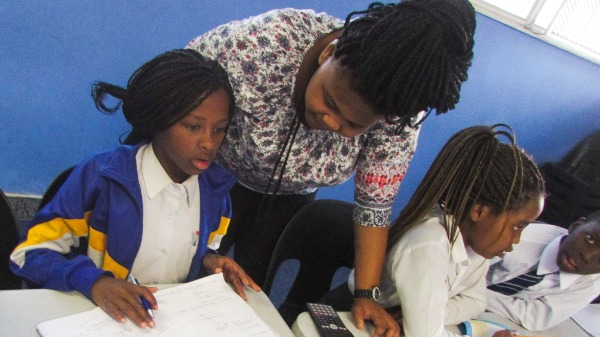South Africa is characterised by shocking inequality at all levels of life. This is very clear in the education system 30 years after apartheid legally ended. Many schools are struggling with infrastructure and support for learners. Many learners in the schools are from disadvantaged backgrounds.
Many learners in Swaneville, Krugersdorp, fall under the same situation. The schools in the area are mostly categorised between quintiles 1 and 3.
For many working class parents, assisting their children with homework is a struggle, as a result children often don’t do well at school.
Kwena Chosi (26) established an afternoon program in 2021 solely to ensure children in Swaneville receive all the necessary academic support. This program assists learners from poor backgrounds and those who seriously need this kind of support. It has become a helping hand for parents who struggle to assist their children with their schoolwork or assignments. The program also helps the elderly who are struggling to look after their grandchildren by keeping them safe after school.
Chosi together with two other tutors mainly assist learners from grades 4 to 9. They focus on mathematics and English. Thapelo Marumo (45) says he was very proud of the way his child passed last year [2024], and he is happy about the community program because it took his child away from the streets. He was no longer focused on his books and had started smoking.
Marumo says his son believes the program had an impact on him, he is now focused on his books. 14-year-old Precious Mangope who became a top learner in Rietvallei Primary School, says she is proud of the program because it helps her achieve the top position at her school.
During school holidays, Chosi partners with other community organisations like Entokozweni Home Based Care and Young Minds to offer engaging after-school holiday programs for the children in the community.
“As the program grows, it will provide even more opportunities for learners to participate in extra-mural activities and support them with their overall well-being,” said Chosi.
This article was submitted on 15 January 2025. You may republish this article, so long as you credit the authors and Karibu! Online (www.Karibu.org.za), and do not change the text. Please include a link back to the original article.


 Download PDF
Download PDF